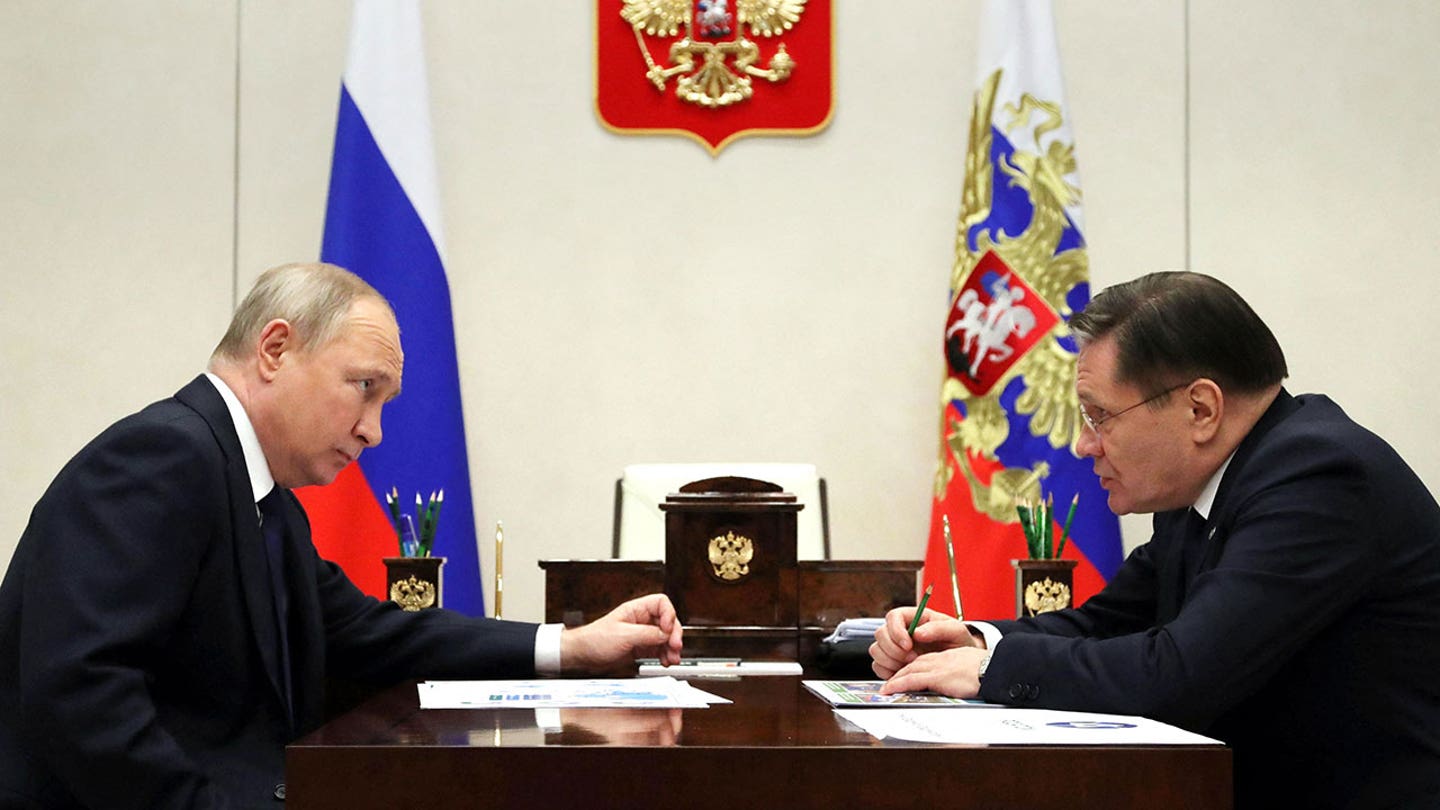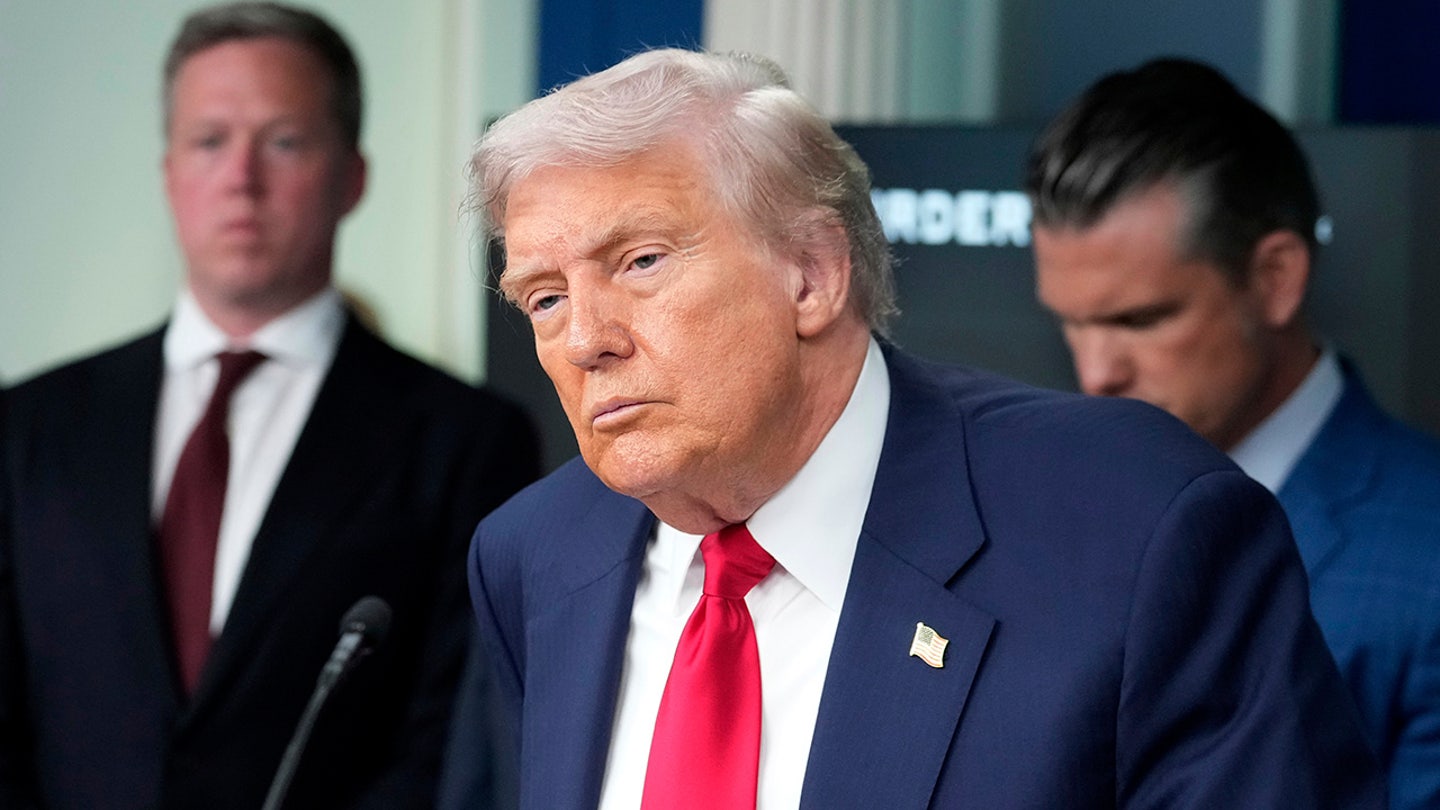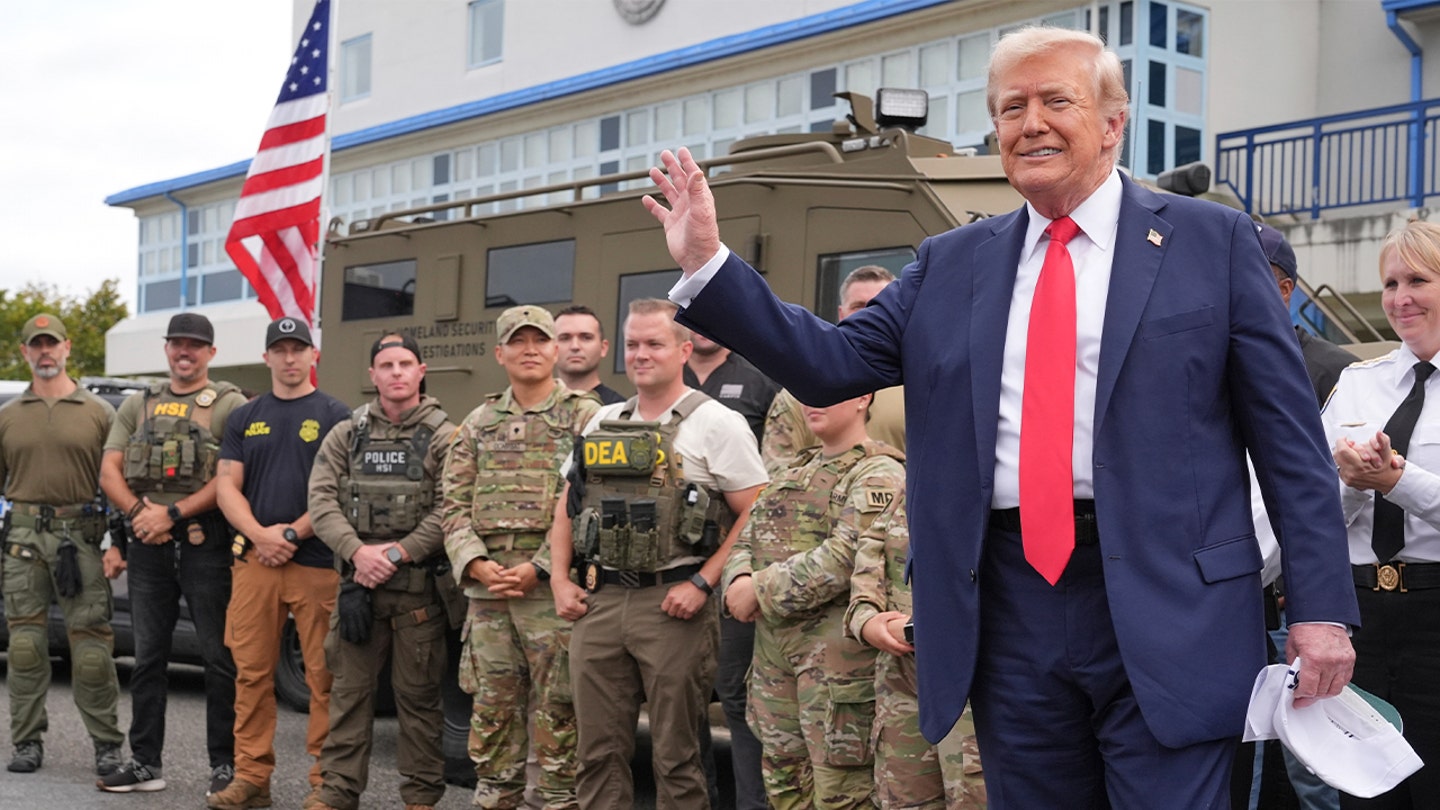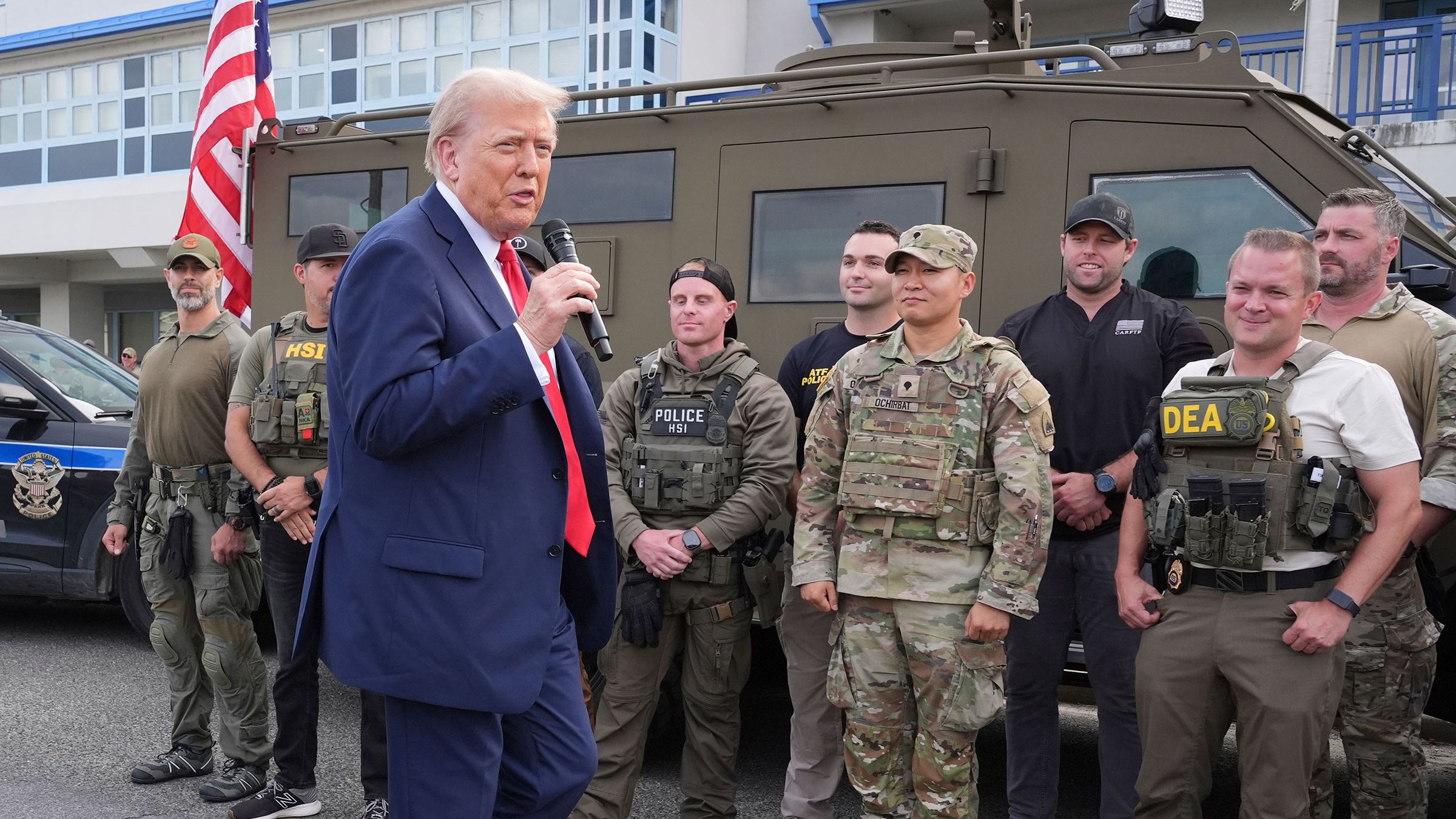
Russia looks to update nuclear program amid ‘colossal threats’ from West
Entities mentioned:
- Alexei Likhachev: Security, Power, Duty
- Vladimir Putin: Power, Security, Influence
- Donald Trump: Security, Competitive spirit, Power
- Russia: Security, Power, Self-preservation
- United States: Security, Influence, Power
- China: Power, Influence, Security
Article Assessment:
Credibility Score: 75/100
Bias Rating: 55/100 (Center)
Sentiment Score: 30/100
Authoritarianism Risk: 55/100 (Mixed/Neutral)
Bias Analysis:
The article presents a relatively balanced view, incorporating perspectives from both Russian and U.S. sources. However, there's a slight lean towards Western viewpoints, particularly in framing Russia's actions as potentially threatening.
Key metric: Global Nuclear Stability Index
As a social scientist, I analyze that this article highlights a concerning trend towards nuclear armament and away from disarmament efforts. Russia's emphasis on upgrading its nuclear capabilities, coupled with similar rhetoric from the U.S., suggests a potential new arms race. This development, along with the uncertain future of the New Start Treaty, could significantly destabilize global nuclear security. The article underscores the tensions between major powers and the use of nuclear capabilities as a geopolitical tool, which may lead to increased global instability and a higher risk of nuclear conflict.

Israel set to launch Gaza City offensive: High stakes, high costs ahead
Entities mentioned:
- Israel: Security, Revenge, Justice
- Hamas: Control, Power, Revenge
- IDF (Israel Defense Forces): Duty, Professional pride, Determination
- John Spencer: Expertise, Duty, Wariness
- Gadi Shamni: Expertise, Wariness, Duty
- Anonymous former Israeli security official: Expertise, Wariness, Duty
Article Assessment:
Credibility Score: 75/100
Bias Rating: 55/100 (Center)
Sentiment Score: 25/100
Authoritarianism Risk: 45/100 (Mixed/Neutral)
Bias Analysis:
The article presents multiple expert perspectives and includes detailed information about both Israeli and Hamas strategies. While it leans slightly towards the Israeli perspective, it also addresses potential risks and criticisms of the operation.
Key metric: Global Conflict Index
As a social scientist, I analyze that this article details Israel's preparation for a major offensive against Hamas in Gaza City, which will significantly impact the Global Conflict Index. The operation, dubbed 'Gideon's Chariots B', involves unprecedented military mobilization and presents complex challenges due to Gaza's dense urban environment and Hamas' extensive tunnel network. The analysis from military experts suggests a protracted, high-stakes conflict with potential for significant casualties on both sides and risks to civilian lives and hostages. This escalation could lead to increased regional instability, international diplomatic tensions, and a potential humanitarian crisis, all of which would negatively affect the Global Conflict Index. The operation's success or failure could have long-lasting implications for Middle Eastern geopolitics and global security dynamics.

Russia says Ukrainian drones hit nuclear power plant during Independence Day strikes
Entities mentioned:
- Russia: Control, Self-preservation, Security
- Ukraine: Freedom, Self-preservation, Determination
- U.N. nuclear watchdog: Security, Duty, Professional pride
- Rafael Mariano Grossi: Security, Duty, Professional pride
- Volodymyr Zelenskyy: Unity, Determination, Security
- United States: Influence, Security, Power
Article Assessment:
Credibility Score: 65/100
Bias Rating: 55/100 (Center)
Sentiment Score: 30/100
Authoritarianism Risk: 35/100 (Generally Democratic)
Bias Analysis:
The article presents information from both Russian and Ukrainian sources, attempting to balance perspectives. However, there's slightly more detail on Ukrainian statements, possibly indicating a slight lean towards Western sources.
Key metric: International Conflict and Security
As a social scientist, I analyze that this article highlights the ongoing tensions between Russia and Ukraine, particularly on Ukraine's Independence Day. The reported drone attacks on Russian infrastructure, including a nuclear power plant, demonstrate the escalation of the conflict and its potential to affect critical facilities. This raises significant international security concerns, especially regarding nuclear safety. The contrasting narratives from Russian and Ukrainian sources about the number and effectiveness of drone attacks reflect the information warfare aspect of this conflict. President Zelenskyy's speech emphasizes Ukraine's determination for independence and international recognition, while also acknowledging the complex geopolitical dynamics involving the US and Russia. The incident underscores the volatile nature of the conflict and its potential to impact global security and diplomatic relations.

DC statehood debate intensifies as Trump flexes authority over local police
Entities mentioned:
- President Donald Trump: Power, Control, Security
- Democrats: Justice, Freedom, Righteousness
- Sen. Paul Strauss: Justice, Freedom, Duty
- Del. Eleanor Holmes Norton: Justice, Freedom, Duty
- White House: Control, Security, Power
- Sen. Tim Kaine: Justice, Freedom, Duty
- Sen. Chris Van Hollen: Justice, Freedom, Duty
- Rep. Jamie Raskin: Justice, Freedom, Duty
- Republicans: Power, Control, Security
Article Assessment:
Credibility Score: 75/100
Bias Rating: 45/100 (Center)
Sentiment Score: 35/100
Authoritarianism Risk: 55/100 (Mixed/Neutral)
Bias Analysis:
The article presents views from both sides of the debate, including quotes from Democrats and White House representatives. While it gives more space to pro-statehood arguments, it also includes counterarguments, maintaining a relatively balanced perspective.
Key metric: Democratic Index
As a social scientist, I analyze that this article highlights a significant tension between federal power and local autonomy in Washington D.C., impacting the Democratic Index. The president's actions to take control of local police forces have reignited the debate on D.C. statehood, which is fundamentally about democratic representation and self-governance. This situation exposes the unique and problematic status of D.C. as a non-state entity subject to federal control, potentially undermining democratic principles. The debate also reflects broader national tensions between federal and state powers, and partisan divides on issues of urban governance and law enforcement. The push for D.C. statehood, if successful, would significantly alter the balance of power in Congress and potentially impact future national elections, thus having far-reaching implications for the Democratic Index of the United States.

Gianno Caldwell mulls Senate bid as Chicagoans are 'begging for change' on crime woes
Entities mentioned:
- Gianno Caldwell: Justice, Ambition, Duty
- Illinois Republican Party: Power, Influence, Security
- Donald Trump: Control, Power, Security
- Muriel Bowser: Freedom, Righteousness, Wariness
- Dick Durbin: Legacy, Duty, Self-respect
Article Assessment:
Credibility Score: 70/100
Bias Rating: 65/100 (Lean Right)
Sentiment Score: 35/100
Authoritarianism Risk: 55/100 (Mixed/Neutral)
Bias Analysis:
The article leans slightly right, focusing more on Republican perspectives and Trump's approach to crime. While it includes some opposing views, it gives more space and detail to conservative positions on law enforcement.
Key metric: Violent Crime Rate
As a social scientist, I analyze that this article highlights the growing concern over crime rates in major U.S. cities, particularly Chicago. Gianno Caldwell's potential Senate bid, motivated by personal tragedy and a desire for change, reflects a broader political shift towards prioritizing law and order. The article suggests a tension between federal intervention in local policing and concerns about civil liberties. This focus on crime could significantly impact the violent crime rate metric by potentially leading to more aggressive law enforcement policies. However, the effectiveness and potential consequences of such approaches remain debatable, as evidenced by the contrasting views presented in the article.

Scoop: 'Make America Fentanyl Free' campaign launches to help Trump lower overdose deaths
Entities mentioned:
- Donald Trump: Ambition, Legacy, Control
- Make America Fentanyl Free campaign: Righteousness, Duty, Influence
- Mexican drug cartels: Greed, Power, Control
- Trump administration: Control, Legacy, Security
- Democrats in California: Moral outrage, Justice, Security
Article Assessment:
Credibility Score: 65/100
Bias Rating: 70/100 (Lean Right)
Sentiment Score: 45/100
Authoritarianism Risk: 55/100 (Mixed/Neutral)
Bias Analysis:
The article leans right, primarily focusing on Trump's efforts and the new campaign supporting him. It presents criticism of Trump's approach briefly and near the end, giving more prominence to pro-Trump messaging.
Key metric: Drug Overdose Death Rate
As a social scientist, I analyze that this article highlights a new campaign aimed at supporting President Trump's efforts to combat fentanyl-related deaths in the United States. The campaign, 'Make America Fentanyl Free,' is presented as a privately-funded initiative to educate the public about fentanyl dangers and support Trump's policies. The article emphasizes Trump's past actions against fentanyl trafficking but also mentions criticism of his administration's approach. This campaign could potentially impact the drug overdose death rate by increasing public awareness and supporting stricter border control and law enforcement measures. However, the effectiveness of such campaigns in directly reducing overdose deaths is often debated in the scientific community.

Trump's week shaped by crime agenda, potential guard deployment to Chicago
Entities mentioned:
- Donald Trump: Power, Control, Influence
- Pam Bondi: Duty, Justice, Professional pride
- Brandon Johnson: Self-preservation, Righteousness, Indignation
- J.B. Pritzker: Duty, Self-preservation, Wariness
- Wes Moore: Duty, Security, Cooperation
- Muriel Bowser: Duty, Security, Self-preservation
Article Assessment:
Credibility Score: 70/100
Bias Rating: 55/100 (Center)
Sentiment Score: 35/100
Authoritarianism Risk: 65/100 (Authoritarian Tendencies)
Bias Analysis:
The article presents multiple viewpoints, including Trump's statements and responses from Democratic leaders. While it leans slightly towards critiquing Trump's approach, it maintains a relatively balanced presentation of facts and perspectives.
Key metric: Crime Rate in Major Cities
As a social scientist, I analyze that this article highlights President Trump's focus on crime reduction in major U.S. cities, particularly Chicago and Washington D.C., through the potential deployment of National Guard troops and increased federal law enforcement presence. This approach reflects a centralized, federal-level intervention in local matters, which could impact crime rates but also raises concerns about federal overreach and political motivations. The President's rhetoric and actions suggest a belief that forceful intervention can quickly reduce crime, but this approach may overlook complex socio-economic factors contributing to urban crime. The resistance from local Democratic leaders indicates a political divide in approaches to public safety and federalism. This conflict could affect the implementation and effectiveness of crime reduction strategies, potentially impacting the key metric of crime rates in major cities.

MIKE POMPEO: How Trump can save Lebanon from Iran's influence
Entities mentioned:
- Donald Trump: Power, Influence, Legacy
- Hezbollah: Control, Power, Loyalty
- Iran: Influence, Control, Power
- Lebanese Armed Forces: Duty, Unity, Security
- United Nations Interim Force in Lebanon (UNIFIL): Obligation, Security, Duty
- Mike Pompeo: Influence, Righteousness, Security
Article Assessment:
Credibility Score: 65/100
Bias Rating: 75/100 (Lean Right)
Sentiment Score: 35/100
Authoritarianism Risk: 65/100 (Authoritarian Tendencies)
Bias Analysis:
The article leans right due to its hawkish foreign policy stance and strong pro-Trump, anti-Iran rhetoric. It presents a one-sided view of the situation in Lebanon, focusing solely on Iranian influence without acknowledging other complex factors.
Key metric: US Global Influence Index
As a social scientist, I analyze that this article advocates for a significant shift in US foreign policy towards Lebanon, emphasizing a more assertive approach to counter Iranian influence through Hezbollah. The author, Mike Pompeo, argues for dismantling UNIFIL, strengthening the Lebanese Armed Forces, and actively disrupting Iran's weapons pipeline to Lebanon. This proposed strategy could potentially increase US influence in the region but also risks escalating tensions. The focus on military solutions over diplomatic engagement reflects a hawkish foreign policy stance, which could impact the US Global Influence Index by potentially strengthening US hard power in the Middle East while possibly diminishing soft power and diplomatic leverage in the international community.

Rubio's major immigration move praised by conservative experts
Entities mentioned:
- Marco Rubio: Security, Righteousness, Influence
- Jessica Vaughan: Security, Righteousness, Professional pride
- Lora Ries: Security, Justice, Professional pride
- David Bier: Professional pride, Obligation, Indignation
- Trump administration: Control, Security, Influence
Article Assessment:
Credibility Score: 65/100
Bias Rating: 70/100 (Lean Right)
Sentiment Score: 35/100
Authoritarianism Risk: 60/100 (Mixed/Neutral)
Bias Analysis:
The article leans right, primarily featuring voices supporting the policy change. While it mentions reaching out to left-leaning groups, their perspectives are not included, creating an imbalance in viewpoint representation.
Key metric: Immigration Policy Effectiveness
As a social scientist, I analyze that this article highlights a significant shift in U.S. immigration policy, specifically targeting commercial truck drivers. The move by Secretary of State Marco Rubio to halt work visas for foreign truck drivers is presented as a response to safety concerns and economic pressures on American workers. This policy change is likely to have substantial impacts on the trucking industry, potentially affecting supply chains and the economy. The article frames the decision as a response to a specific incident, which raises questions about the broader applicability of such a policy. The divergent views presented, from conservative support to criticism from immigration advocates, reflect the complex and contentious nature of immigration policy in the U.S. This policy shift aligns with the broader trend of the Trump administration's restrictive approach to immigration, which could have long-term effects on labor markets and international relations.

Trump says law enforcement crackdown will ‘go on to other places’ during appearance at police facility in DC
Entities mentioned:
- Donald Trump: Power, Control, Recognition
- US Park Police: Duty, Security, Professional pride
- National Guard: Duty, Security, Obligation
- JD Vance: Loyalty, Ambition, Influence
- DC Residents: Freedom, Self-preservation, Indignation
Article Assessment:
Credibility Score: 70/100
Bias Rating: 55/100 (Center)
Sentiment Score: 35/100
Authoritarianism Risk: 65/100 (Authoritarian Tendencies)
Bias Analysis:
The article presents multiple viewpoints, including Trump's statements, opposition from DC residents, and critical perspectives. However, it leans slightly towards emphasizing concerns about the federal intervention, potentially reflecting a slight center-left bias.
Key metric: Public Trust in Government
As a social scientist, I analyze that this article highlights a significant tension between federal authority and local governance in Washington, DC. The expansion of federal law enforcement presence, including the National Guard, into city affairs without local support (79% opposition) indicates a potential erosion of public trust in government. This action, framed as a safety measure by the administration, is perceived differently by residents, suggesting a disconnect between federal intentions and local desires. The potential expansion to other cities could further strain federal-local relations and impact democratic norms, particularly in areas with strong local governance traditions. The emphasis on clearing homeless encampments without clear alternatives also raises concerns about social policy approaches and their impact on vulnerable populations.